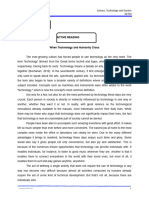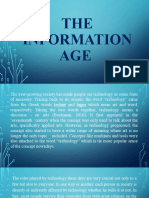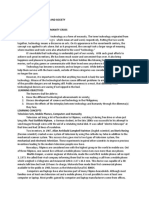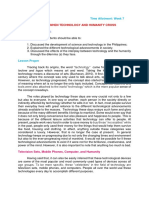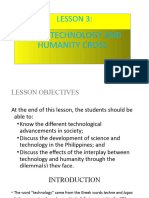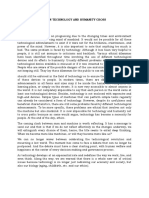0% found this document useful (0 votes)
5 views2 pagesReport 1
While most Filipinos own televisions and mobile phones, computer ownership is less common, with manufacturers primarily profiting from businesses and schools. The document discusses the ethical dilemmas posed by technological advancements, particularly concerning children's well-being and exposure to inappropriate content. It emphasizes the shared responsibility of both creators and users in ensuring technology is used positively and safely.
Uploaded by
9z7ydw8s2fCopyright
© © All Rights Reserved
We take content rights seriously. If you suspect this is your content, claim it here.
Available Formats
Download as DOCX, PDF, TXT or read online on Scribd
0% found this document useful (0 votes)
5 views2 pagesReport 1
While most Filipinos own televisions and mobile phones, computer ownership is less common, with manufacturers primarily profiting from businesses and schools. The document discusses the ethical dilemmas posed by technological advancements, particularly concerning children's well-being and exposure to inappropriate content. It emphasizes the shared responsibility of both creators and users in ensuring technology is used positively and safely.
Uploaded by
9z7ydw8s2fCopyright
© © All Rights Reserved
We take content rights seriously. If you suspect this is your content, claim it here.
Available Formats
Download as DOCX, PDF, TXT or read online on Scribd
/ 2






